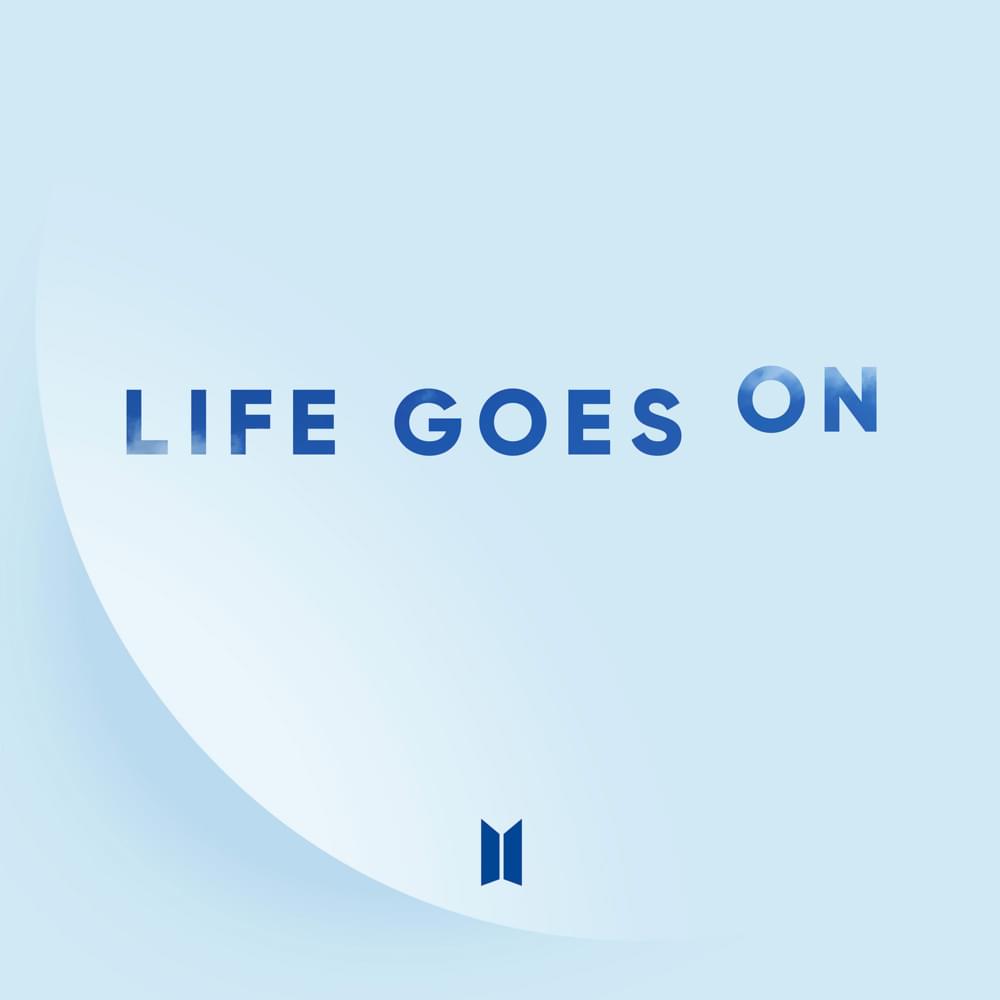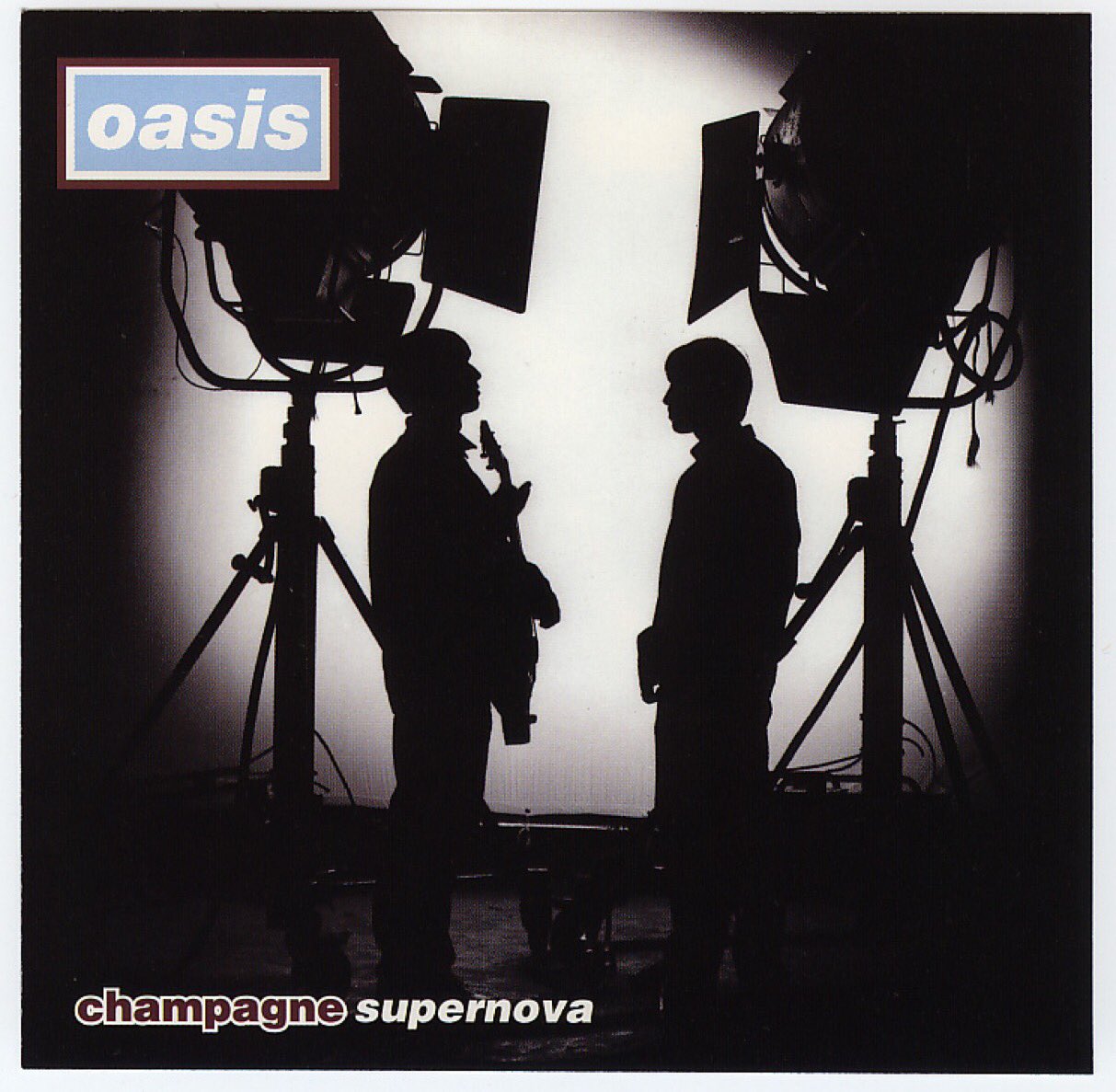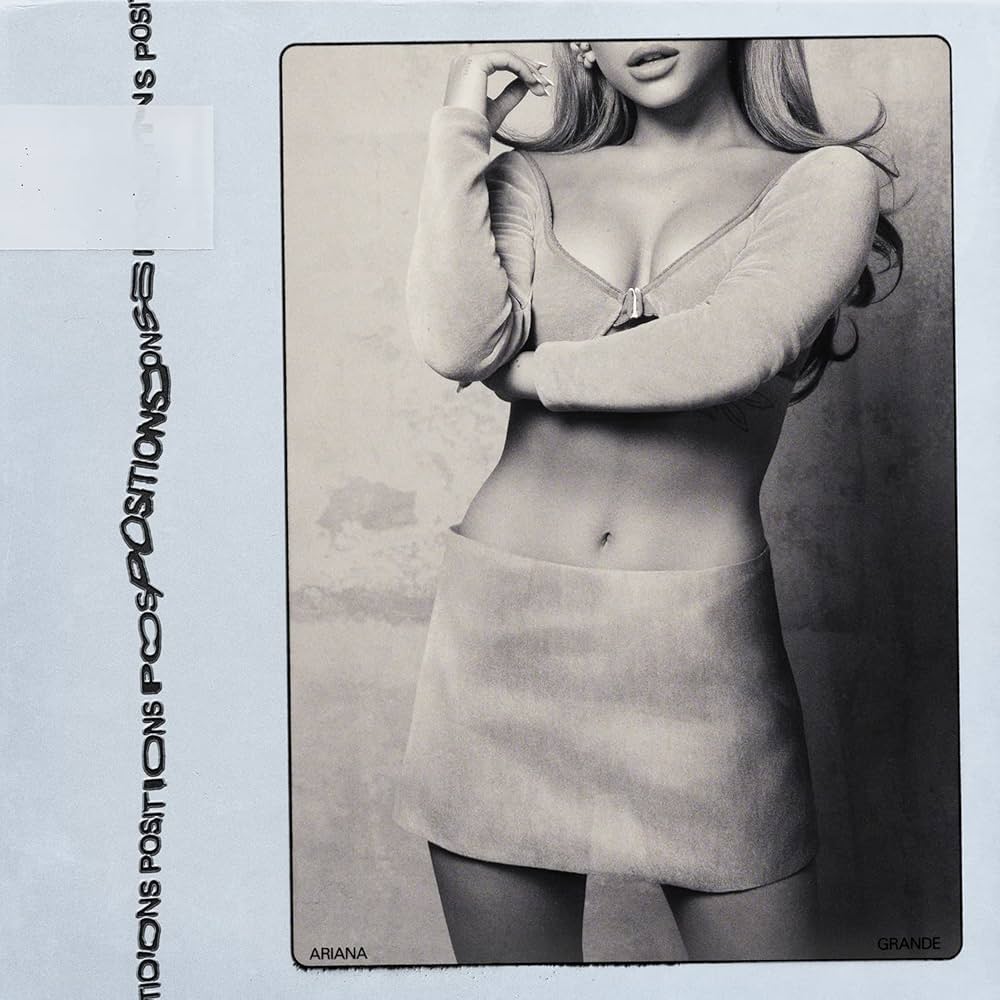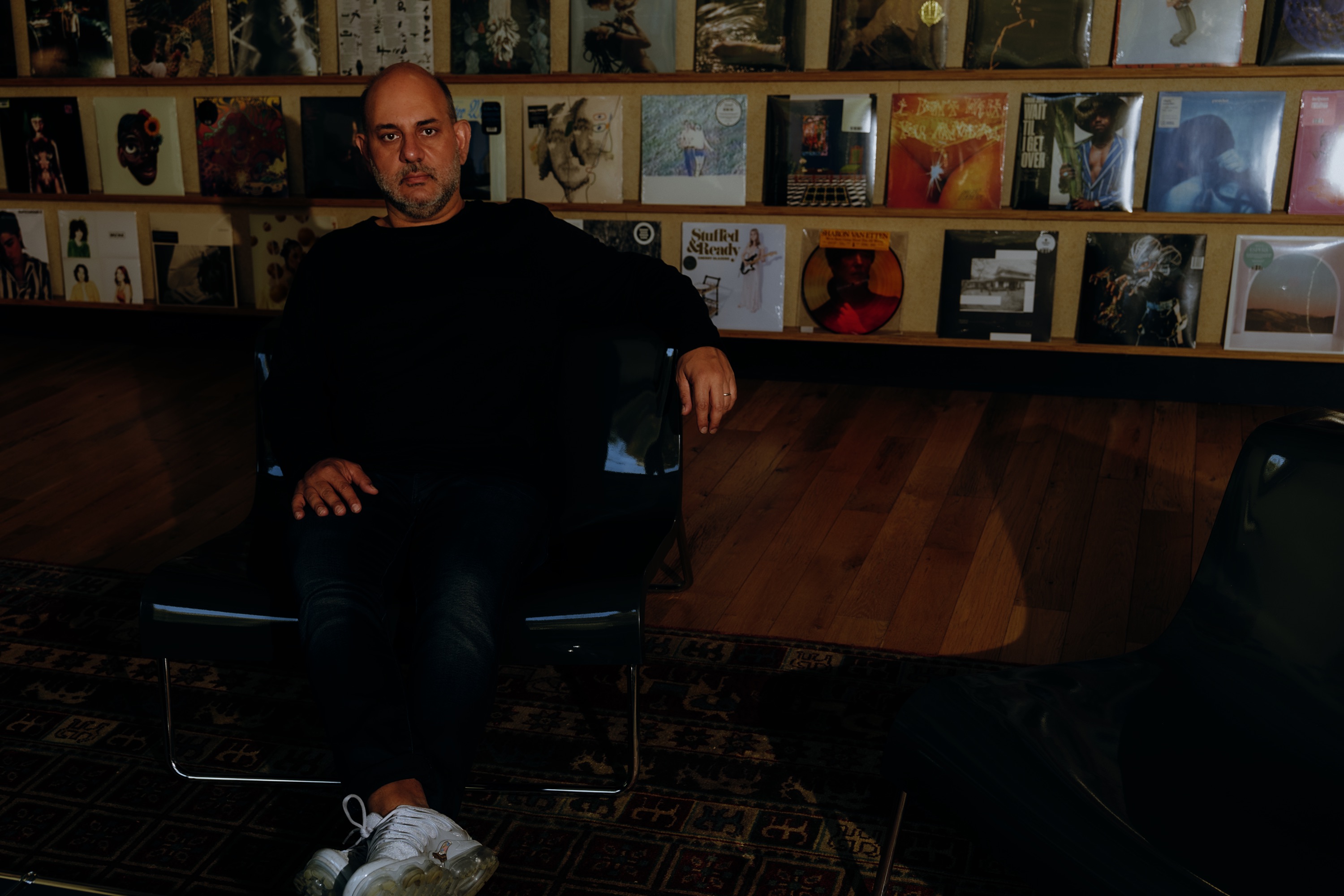Last Saturday I attended the inaugural Breakaway Music Festival, a one-day fest targeted at college students, held in a modest soccer stadium in Columbus, Ohio. Headliners included Bassnectar, Empire Of The Sun and Kendrick Lamar, with Juicy J, Porter Robinson and Schoolboy Q among those filling out the bill. Also in the lineup was the charming B-list Toronto indie band Tokyo Police Club, the lone act among Breakaway's 26 performers that could qualify as a guitar-driven rock band -- and even they're defined just as much by their keyboard parts and their rhythm section. Empire Of The Sun and fellow Aussies Alpine could technically qualify as indie rock, but their airy, synth-driven pop concoctions aren't exactly heavy on the six-string action. Kendrick Lamar brought a live band with him, but only to perform in that jazzy late-night-TV style rappers sometimes adopt as a status symbol. Twenty One Pilots, one of the main-stage acts, signed to the pop-punk label Fueled By Ramen on the strength of a huge grassroots teenage/collegiate fan base but seems to have made a concerted effort to exclude the guitar from its schizoid genre mash, instead gravitating toward synthetic pop sounds like labelmates Paramore and Fall Out Boy before them.
The guitar used to be the go-to instrument for sonic violence, rock-star excess, and wanton youthful exuberance, but Breakaway's audience of scantily clad women and aggro bros didn't seem to miss it much. Similar reports trickled in from the Made In America Festival, where, among other indignities, Queens Of The Stone Age performed for a fraction of the crowds that greeted the big-name rappers and DJs. Jared Leto wasn't the only one who noticed guitar rock's absence at this year's VMAs, which even excluded acoustic-slingers Mumford & Sons. A New York Times story last fall reported Fender's struggles to sell guitars and attract investors, noting, "It’s worth remembering that the accordion was once the most popular instrument in America."
The guitar's decline isn't a new phenomenon, and reports of its death have often been exaggerated. Declaring the demise of guitar music was all the rage at the height of '90s big beat, just like it was in synth-saturated '80s. Rockist "real music" fans felt threatened by the rise of disco in the '70s, and in a much-circulated, sometimes disputed quote from way back in 1962, Decca Records A&R man Dick Rowe supposedly rejected the Beatles on the grounds that "guitar groups are on their way out." Guitar rock has waxed and waned in popularity enough times that it seems unlikely to ever die out completely. But spend any time at one of these youth-oriented festivals and you can't help but notice a sea change, the payoff from decades of musical and technological evolution. Guitar rock remains a huge segment of the music industry, but its role in youth culture is disappearing. Even Guitar Hero's time has passed, a demise that seems to have generated far more eulogies online than the dwindling deployment of actual guitars.
The audience for guitar rock music is graying, and the generation coming up behind seems to have less use for the instrument than ever before. Young folks haven't dispensed with guitar rock entirely, but it seems more like a niche concern now. And bands in those niches, be they abrasive AmRep/Sub Pop revivalists like Cloud Nothings and Pissed Jeans or all those female-fronted emo-folk revivalists on Exploding In Sound and Don Giovanni, are revivalists nonetheless. When the guitar has reared its head in the mainstream this year, it's been in the context of throwback soul and disco sounds a la Nile Rodgers' work with Daft Punk or Justin Timberlake's The 20/20 Experience; in contrast, the Miley Cyrus smash "We Can't Stop", touted by NYT critic Jon Caramanica as the anarchic antidote to the so-called "Summer Of Smooth," is fully synthetic. Part of the way Rick Rubin rendered Eminem's comeback single "Berzerk" as old-school was by lacing it with electric guitars. Plenty of retro bands have employed the guitar over the years, but now the guitar is becoming retro in and of itself, a signifier of all things stodgy and traditionalist.
Maybe that's why Chvrches did away with their six-strings almost entirely. As Matthew Perpetua's great Buzzfeed primer explains, all three members of the Scottish synth-pop trio used to play in guitar-oriented projects geared toward big-swell emotive catharsis: Lauren Mayberry with Blue Sky Archives, Iain Cook with Aerogramme, and Martin Doherty as a touring member of the Twilight Sad. Chvrches' synth-powered aesthetic represents a major departure for all three musicians, and judging from the way their band seems to be riding the zeitgeist right now, it was a wise departure. Subjectively, Chvrches feels fresh and forward-thinking compared to the groups mining '90s alt-rock; digital music feels like life in our digital age. Objectively, when Chvrches played my city last Friday, they headlined a concert hall more than twice the capacity of the venues that hosted guitar-powered underground luminaries Deerhunter and Mission Of Burma the same night.
The switch to synth-pop is paying dividends creatively too. Chvrches' sublime debut album The Bones Of What You Believe, which drops next week via Glassnote, is one of the year's most uniformly enjoyable collections of music. Our own Miles Bowe summed up the sound exceptionally as "a fierce combination of 'Heartbeats'-era Knife romanticism and M83's neon majesty." This is pleasure-center pop firing on all cylinders -- Mayberry's sparkling moonbeam vocals, low-end rhythmic heft, dense textures worth plumbing with expensive headphones, melodies to spare, songwriting that pierces the heart and pumps the lungs full of life. It's effortlessly effervescent stuff, a step above anything the members concocted in their previous projects. Emotionally, they're swinging for the same fences as ever, but it's like they've traded wood bats for aluminum.
It's not that synthesizers are inherently more powerful tools than guitars. The Chvrches songs would still rule if you subbed in effects-laden strumming and shredding, and some listeners might even deem that sound superior. But working in that de rigueur medium seems to have invigorated the group in a way that guitars didn't. Maybe it's just a matter of newfound poptimism unlocking ideas these three wouldn't have dared indulge before. Maybe it's the rut-busting creative renaissance that often accompanies the switch to a new instrument. Whatever is driving it, Chvrches has tapped into something lively and timely by pushing indie rock ever further away from the guitars that have always been its bread and butter.
Icona Pop, the Swedish duo whose stateside debut This Is... Icona Pop also arrives next week, represents the reverse: a traditionally electronic genre adopting elements from underground guitar music. The live show rages; when I caught Icona Pop at SXSW warehouse party, their performance upped my adrenaline to levels that Merchandise's dreary, gnarled shoegaze couldn't touch. In other words, they rocked far harder than the "rock" band with the guitars rocked.
It's not a matter of sound so much as feeling. This Is... Icona Pop is unmistakably a big-budget pop album; as follows, six-strings are scarce throughout. The attitude, though, is plenty punk-rock. I'm not ready to go as far as Spin's Brandon Soderberg, who described Icona Pop as "kind of just a hardcore band" on Twitter, but there's latent aggression and youthful rebellion in this music that would no longer jibe with an antiquated guitar-rock aesthetic. There was a time when "Girlfriend" might have been a Bangles song or even a Bikini Kill song, but no self-respecting '90s bitch is going to wild out like she's from the '70s.
The guitar's decline isn't entirely a function of fashion, though. Speaking of the '90s: It's the economy, stupid! Guitars, amps, and pedals ain't cheap, and that's before you factor in the cost of maintenance and repair. Such tools of the trade are very much a luxury in 21st century life -- "a nonessential," per the Times. You know what is essential to modern living, though? A computer. If everybody already has a laptop, and you can approximate the sound of a Gibson SG with some GarageBand plugin you jacked from some illicit offshore server, why bother dropping so much of your paycheck at Sam Ash? With the unemployment rate still hovering above 7 percent, the cost of higher education skyrocketing and health care costs outpacing economic growth, the tactile sensation of strumming a guitar might not justify the expenditure -- especially when the infinite realm of sonic possibilities online surpasses the creative potential of a cruddy secondhand Squier. Furthermore, anyone who has struggled to transport stacks upon stacks of books and records knows the appeal of Kindles and USB hard drives; musicians have to lug their equipment around constantly, not just on the rare occasion of an address change.
Under those conditions? Of course a new generation has found new ways to be young, wild and free. Of course the sound of rupture has moved on from the sound of "Eruption". Of course the Stratocaster is going the way of the squeezebox. When music is as spellbindingly alive as what Chvrches and Icona Pop are kicking out, so what if guitar rock gets the axe?






